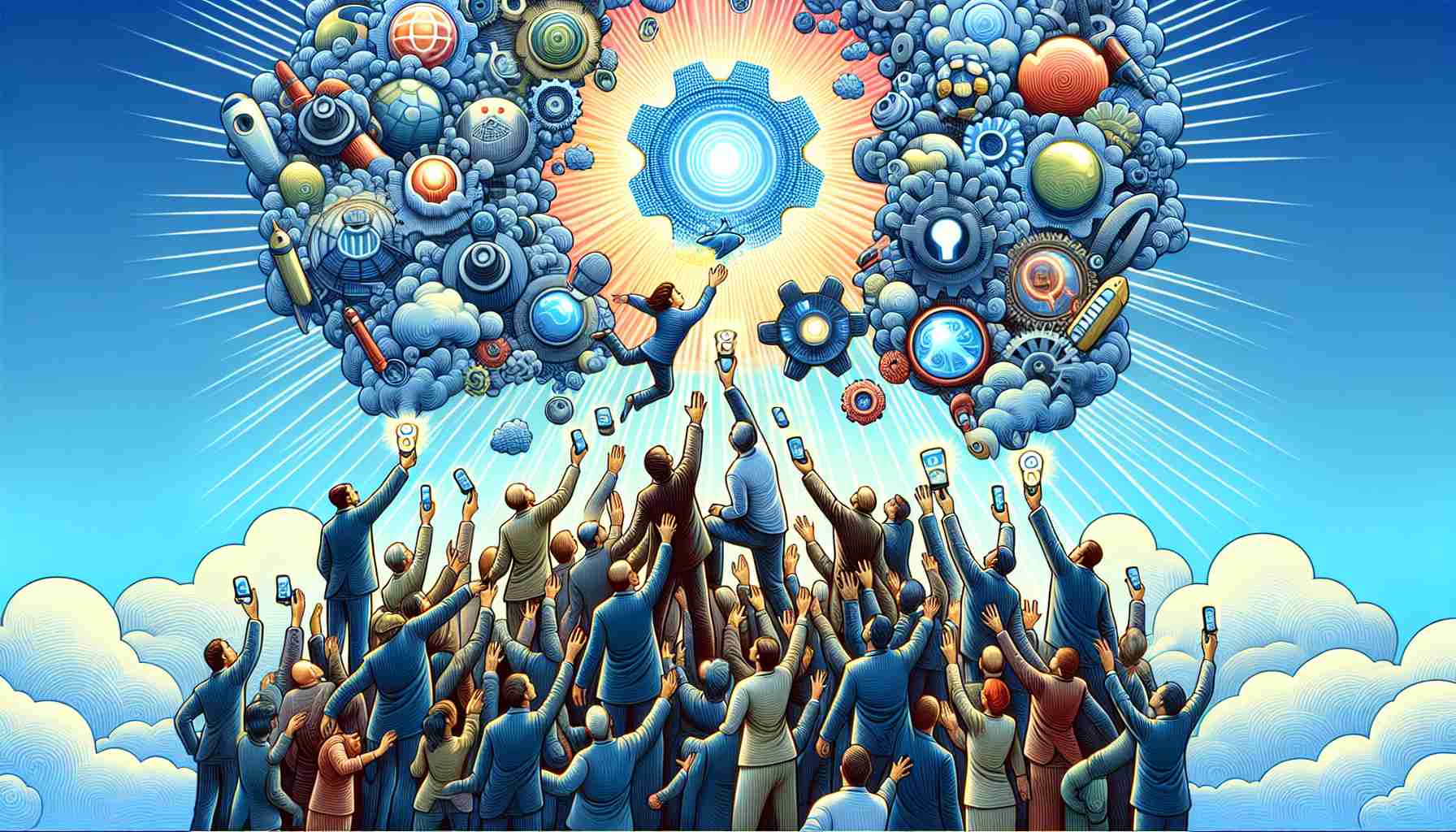When the Bluesky social network hit the real world last week, few seemed to take notice. This lack of interest raises questions about the transient nature of the technology sector and the fragility of hype.
With Elon Musk’s acquisition of Twitter, many users sought an alternative social network to avoid giving control to the capricious billionaire. Bluesky and Mastodon emerged as options, both based on the idea of an open protocol that prevented one person or a group from monopolizing the conversation. Bluesky, often referred to as a “Twitter clone,” gained attention for its functionality and user-friendly interface.
Launched in February 2023 by Twitter co-founder Jack Dorsey, Bluesky drew media coverage and leveraged this exposure to maintain a beta version that attracted 2 million users. While not a large number, it was enough to sustain the social network. These users gained access through invitation and code, creating a sense of exclusivity and FOMO (fear of missing out) among those without access.
However, Bluesky’s decision to halt invitations due to system limitations exacerbated the FOMO effect. Demand surged, with users scrambling to obtain codes and invitations, resulting in a massive waiting list of approximately 30,000 people per day. The exclusivity cultivated around Bluesky gave rise to a class of users known as “Bluesky Elders,” who felt entitled to establish norms and limits based on their perceived seniority within the network.
Despite the buzz and exclusivity, Bluesky’s grand opening went unnoticed by many. This raises the question of whether a social network can thrive without offering substantial innovation. The success of any social network relies on the network effect, where the value for one user increases as more people join. Historically, many social networks have failed to recruit enough users to generate substantial value. Even tech giants like Apple and Google have experienced failures in the social networking space.
Bluesky’s limited innovation and lackluster reception highlight the importance of delivering something truly unique in the competitive landscape of social networking. While hype can create initial buzz, it is the power of innovation that ultimately determines a platform’s long-term success.
FAQ Section
Q: What is Bluesky?
A: Bluesky is a social network launched in February 2023 by Twitter co-founder Jack Dorsey.
Q: Why did users seek an alternative social network?
A: Users looked for an alternative to avoid giving control to Elon Musk after his acquisition of Twitter.
Q: What is the main idea behind Bluesky and Mastodon?
A: Both Bluesky and Mastodon are based on the idea of an open protocol that prevents one person or a group from monopolizing the conversation.
Q: What has Bluesky been referred to?
A: Bluesky has been often referred to as a “Twitter clone.”
Q: How did Bluesky attract attention and users?
A: Bluesky drew media coverage and leveraged this exposure to invite 2 million users through invitation and code, creating a sense of exclusivity.
Q: Why did the FOMO effect occur with Bluesky?
A: Bluesky’s decision to halt invitations due to system limitations caused users to scramble for codes and invitations, resulting in a waiting list of around 30,000 people per day.
Q: Who are the “Bluesky Elders”?
A: The “Bluesky Elders” are a class of users within the network who feel entitled to establish norms and limits based on their perceived seniority.
Q: Has Bluesky’s grand opening gained significant attention?
A: No, Bluesky’s grand opening went unnoticed by many, raising questions about the success of a social network without substantial innovation.
Q: What determines the success of a social network?
A: The success of a social network relies on the network effect and the power of innovation.
Key Terms and Jargon
– Transient nature of the technology sector: Refers to the fast-changing and short-lived nature of the technology industry.
– Hype: Refers to excessive or exaggerated publicity and excitement surrounding a product or event.
– Open protocol: Refers to a communication protocol that is open and accessible to multiple parties, preventing monopolization by one person or group.
– Twitter clone: Refers to a social network that closely resembles or imitates the features and functionality of Twitter.
– Exclusivity: Refers to the state of being limited to a select group of people or having exclusive access.
– FOMO (Fear of Missing Out): Refers to the feeling of anxiety or unease caused by the possibility of missing out on something enjoyable or beneficial.
Related Links:
– Twitter
– Mastodon
The source of the article is from the blog maestropasta.cz
